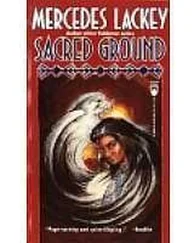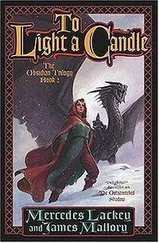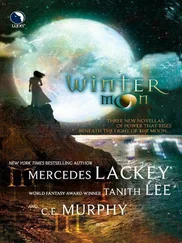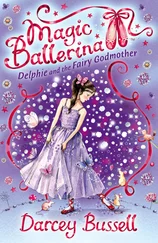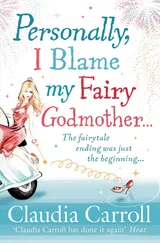Mercedes Lackey - Fairy Godmother
Здесь есть возможность читать онлайн «Mercedes Lackey - Fairy Godmother» весь текст электронной книги совершенно бесплатно (целиком полную версию без сокращений). В некоторых случаях можно слушать аудио, скачать через торрент в формате fb2 и присутствует краткое содержание. Жанр: Фэнтези, на английском языке. Описание произведения, (предисловие) а так же отзывы посетителей доступны на портале библиотеки ЛибКат.
- Название:Fairy Godmother
- Автор:
- Жанр:
- Год:неизвестен
- ISBN:нет данных
- Рейтинг книги:3 / 5. Голосов: 1
-
Избранное:Добавить в избранное
- Отзывы:
-
Ваша оценка:
- 60
- 1
- 2
- 3
- 4
- 5
Fairy Godmother: краткое содержание, описание и аннотация
Предлагаем к чтению аннотацию, описание, краткое содержание или предисловие (зависит от того, что написал сам автор книги «Fairy Godmother»). Если вы не нашли необходимую информацию о книге — напишите в комментариях, мы постараемся отыскать её.
Fairy Godmother — читать онлайн бесплатно полную книгу (весь текст) целиком
Ниже представлен текст книги, разбитый по страницам. Система сохранения места последней прочитанной страницы, позволяет с удобством читать онлайн бесплатно книгу «Fairy Godmother», без необходимости каждый раз заново искать на чём Вы остановились. Поставьте закладку, и сможете в любой момент перейти на страницу, на которой закончили чтение.
Интервал:
Закладка:
The lack of cloth fluttering at them told Elena that the creditors had taken all of the curtains.
And the urns with their little rosemary bushes that had stood on either side of the front door. And the statue of Venus that had held pride-of-place in the center of the flower-bed in this, the front garden. The bills must have been very large indeed, for creditors to take the garden statuary.
At least they hadn't taken the glass out of the windows. But perhaps they couldn't — the glass was part of the house, and as yet, they could make no claim on the house itself. They would have to go before a magistrate, and Elena could plead her cause there, and possibly even win. And even if she didn't, she could take her cause to the King at his weekly audience, and probably win. They said that the King had a notoriously soft spot for orphans, having been left one himself, but that might just be a bit of idle gossip.
She lingered for a moment, steeling herself for the inevitable, then walked up the path. The door had been imperfectly closed, and opened with a touch. It creaked on its iron hinges, and for a moment, Elena winced, expecting Madame to shriek a complaint.
But no. Madame was no longer here to complain. She relaxed again.
Madame had taken as much as she could, but most of the downstairs rooms still had been furnished before the creditors had arrived. Even Madame Klovis could not manage to carry off an entire household of furnishings in a carriage and a hired cart. Most of what Madame had added in the way of decoration to the public rooms of the house had been in soft goods — rugs, tapestries, cushions. Those she had taken with her, leaving the heavy pieces behind. Now the morning light shining through the open windows showed nothing but bare walls with paler patches showing where the tapestries had been, and bare wood floors, marred with deep scratches where the heavy furniture had been dragged out. Elena began wandering through the rooms, taking inventory of what was lost.
The sitting room; here there had been a fine, heavy settle beneath the window, a handsome cabinet made for displaying the family silver (Madame had taken the silver), a table and chairs at the fireplace, a second settle against the wall opposite the window. All of the furniture had been made of dark walnut, lovingly rubbed and waxed until it glowed. The only thing left now was the inglenook seat built into the fireplace itself.
The dining room, where the furniture had been made of the same oak as the beds upstairs; table, twelve chairs, sideboard. All gone.
Her father's office; desk, chair, cabinet where he had kept his records. Now a mere memory. The tiny room seemed much bigger now.
The library — she opened the door and stepped into the room, and stifled a hurt gasp at the sight of all the empty shelves. It had not been a large room, no bigger than the dining room, but it had been her favorite in all the house. This was, perhaps, the greatest loss for Elena, for not only were the stout chairs and desk gone, and the huge, framed map of the Five Hundred Kingdoms that had hung over the door, but so were all the books and ornaments that had stood between them. The ornaments had never interested her a great deal, but the books — those books had been the consolation of lonely hours, the things that took her away when she was unhappy. Madame had not taken any of the books; she had no use for such things, and had not seen their value.
But to Elena, who had hoped that the creditors would not see the value either, the loss of each book was as if she had lost a friend. She had known each of them, read them all countless times, knew every foxed page, every scar on every binding. Tears sprang into her eyes, her throat closed, and she jammed the side of her hand into her mouth to keep from sobbing aloud. Blinded by her tears, she turned away, quickly.
The pantry had already been empty, every bit of food loaded into the carriage, and she did not pause to examine it. Nor would she trouble to go down to the cellar; there was nothing there, either, and for the same reason. Madame never stinted herself on fine wines, and what she didn't drink, without a doubt, Jacques would. The kitchen, however, had still been furnished — Madame did not intend to have to cook for herself, and had no need of kitchenware. Only the fine china had been packed away and taken. But now it, too, was bare, stripped as completely as any other room, every knife, every pot and pan, excepting only the dishrags she had washed and left to dry, two heavy, brown-glazed dishes and three mugs made of the commonest clay, all of them chipped and worn, and two pots made of the same substance. So, she could cook. But otherwise, even the spit, the crane, and the pothook in the fireplace had been taken.
No need to took in the stillroom. What Madame didn't take, they'll have now.
She went upstairs, and did not bother to check the bedrooms on the second floor. If the creditors had been so thorough down below, she doubted that they would have left anything other than dust. Instead, she climbed the stairs to the attic, and her garret room, to see if anything at all had been left there.
She opened the door to her own room and for a moment, she felt frozen with shock. Her few belongings had been tossed about the room as if a mad dog had been playing with them. Her poor, flat little pillow was gone. Her ragged blankets were thrown into the corner. Her other change of clothing wadded up and tossed into the opposite corner. The box that held her few little treasures had been upended, and the comb with teeth missing, the bit of broken mirror, the feathers, bits of pretty stone, and dried flowers kicked everywhere, the string of beads broken and scattered. Her pallet of straw-stuffed canvas had been torn open, the straw scattered about the room. The place was a shambles.
For a second time she fought back tears, but she truly wanted to fall to her knees and weep at the thoughtless cruelty of it. Why? Why tear her poor things to bits? Could they possibly imagine that there had been anything of value hidden up here? How could they even think that she would have been allowed to keep anything? Hadn't the entire town been aware of her shabby state? Why, the town beggars went better clothed than she!
Perhaps another girl would have been paralyzed with the grief that shook her — but Elena had learned to work even while her heart was breaking and her eyes overflowing a long time ago. And if her hands shook as she carefully picked up and shook out her spare skirt, bodice, and blouse, her worn-out shawl and kerchief, and folded them up to set them in the window-seat, what was left of her bits and souvenirs in a mound atop them, well, there was no one to see. And if she sprinkled the straw she regathered from the floor with her tears, there was no one to mock her grief. But it was hard, hard, to have the little she had saved of her past life ground into dust as those poor flowers had been. At least she was wearing the locket with her mother's portrait in it around her neck on a ribbon — Daphne had stolen the chain long ago.
She sobbed quietly as she collected every bit of straw; she would need something to sleep on tonight. It had to be done, and no one would do it for her.
She stuffed it all back into the empty canvas sack that had been her bed. And at least there was one small blessing; she always kept her needlecase in the pocket of her apron, and had they found that, they probably would have taken it as well. So she was able to stitch the mattress back up again, sitting cross-legged on the bare floor. They had torn the seams open, rather than ripping up the canvas, and although she had to remake it a little smaller, when she finished it was not in much worse shape than it had been before it had been torn apart. It was a hard thing, though — to find that men whom she had never harmed, who should realize that she had been just as ill-treated as they, should take out their anger on her.
Читать дальшеИнтервал:
Закладка:
Похожие книги на «Fairy Godmother»
Представляем Вашему вниманию похожие книги на «Fairy Godmother» списком для выбора. Мы отобрали схожую по названию и смыслу литературу в надежде предоставить читателям больше вариантов отыскать новые, интересные, ещё непрочитанные произведения.
Обсуждение, отзывы о книге «Fairy Godmother» и просто собственные мнения читателей. Оставьте ваши комментарии, напишите, что Вы думаете о произведении, его смысле или главных героях. Укажите что конкретно понравилось, а что нет, и почему Вы так считаете.


